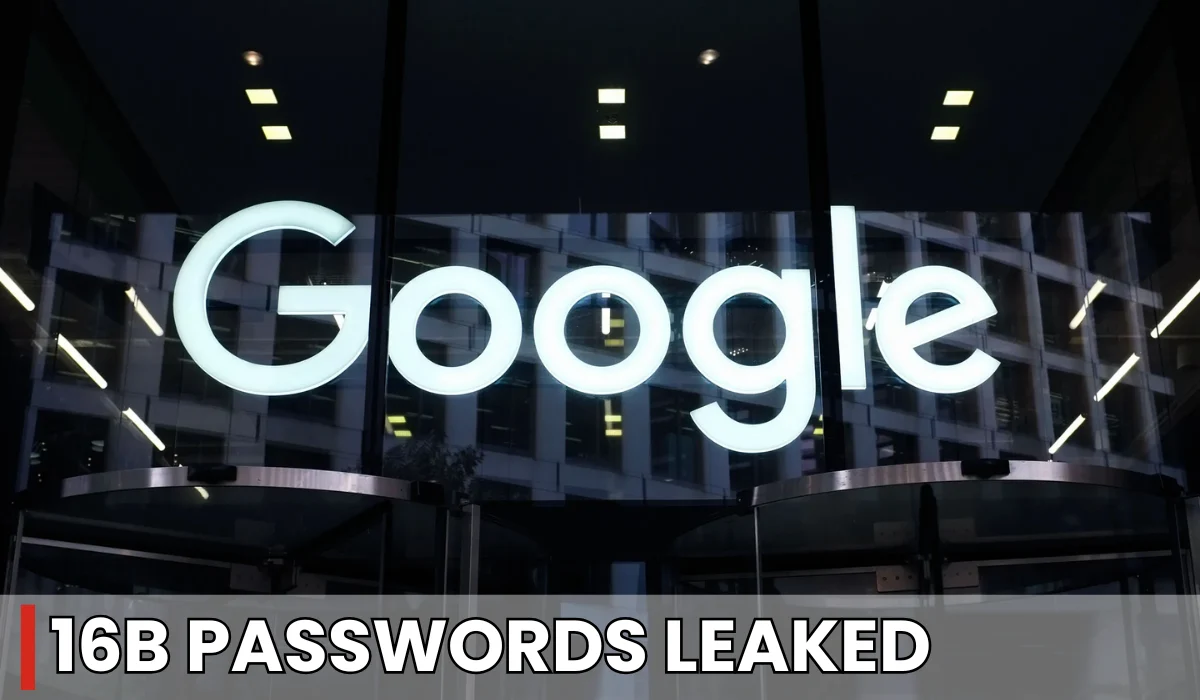I don’t know about you, but I feel that we all tend to overestimate the security of our passwords – and this time, it’s not just concerning but kind of frightening! A leak of a whopping 16 billion credentials recently was revealed, exposing usernames and passwords from all different accounts – primarily Gmail. This is not an insignificant leak, it’s huge. To make matters worse, this is all completely new information, nothing that has been leaked in the past. Traditionally experts have called this the equivalent of simply handing street criminals an entire map to breaking into hundreds of other accounts.
This is why people are imploring everyone to please change your password, set-up two-factor authentication or passkeys, and check your saved passwords. If you don’t unfortunately I feel that you might as well leave your digital front door wide open!
🔍 This Leak Feels Different—and Far More Dangerous
I’ve seen leaks before, but nothing like this. Here’s what makes it worse:
- It’s live data: Taken just recently by malware snooping on people’s computers.
- Super detailed: Full credentials—not just usernames but current passwords, plus some URLs.
- Spread wide: Not just Gmail—it includes Apple, Facebook, Telegram, and more.
- Perfect for hackers: They can use it in phishing, mass password guessing, business scams—you name it.
What this means is that even if you didn’t hear “your stuff leaked,” if your password was out there—and a lot of people reuse passwords—you could still be vulnerable. That scares me. It should scare anyone who cares about their online life.
🛡️ What You Can Do Right Now to Stay Safe
Here’s a list to walk through, just a few minutes of action that might save you later:
- Change your Gmail password immediately.
- Turn on 2FA (text, app-based), or even better—switch to passkeys with phone or fingerprint.
- Run a password check in Google Password Manager or Chrome to see weak/reused ones.
- Clean your autofill settings—delete old passwords saved in browsers.
- Scan your devices with antivirus for any sneaky infostealer software.
- Use a hardware security key (like YubiKey) on your important logins.
- Freeze your credit if your details were included—better safe than sorry.
- Watch your email closely—phishing messages may try to trick you with your real info.
These steps might feel like a drag, but they’re simple things anyone can do in a few minutes—and they make a big difference.
😟 People Are Already Freaked Out—and They’re Right to Be
Here’s some real talk from Twitter—people are already taking it seriously:
If even casual netizens are urging hardware keys and total lock-down, it’s because this leak is a big deal. And they’re worried, just like we all should be.
✅ Why This Story Matters to You
Let me be clear:
- Hackers already have your info: If it was leaked, they’ve got it. They can spoof emails, break accounts, steal IDs.
- Passwords get reused: We all do it—one password for five sites. That means if one gets leaked, the rest might be at risk.
- Phishing will spike: With your real password in hand, scammers can send alarmingly convincing messages.
- Better protection exists now: Passkeys and hardware keys are real upgrades. They’re harder to phish or hack.
This isn’t some theory—real people are being affected. Taking a few minutes today to update your security could keep your digital life intact.
✅ Quick Action Checklist
- Change Gmail password 👉 make it strong, unique
- Enable 2FA or switch to passkeys
- Run password safety scans
- Clean browser autosaves
- Scan for malware
- Get a hardware key for vital accounts
- Watch financial accounts
- Stay alert for personalized phishing
FAQs
What exactly was leaked in the Google password incident?
About 16 billion credentials, including account names and passwords—fresh and stolen by malware, not a reused batch.
Did my Google account get hacked?
Not sure—but if you used the same password elsewhere or it shows up in a leak report, it could be at risk.
How do I check if my password was leaked?
Use Google Password Checkup or secure sites like HaveIBeenPwned (but only Click links from legit pages).
What’s the difference between 2FA and passkeys?
2FA uses codes you receive on your phone/app. Passkeys use your phone’s biometrics or PIN and are more secure.
Do I really need a hardware security key?
They’re a strong layer of security—not needed for everyone, but great for your most important accounts.
What is credential stuffing?
It’s when hackers take leaked password lists and try them on many sites. If you reuse passwords, that’s a big risk.
Should I just reset all passwords now?
Yes—especially if you reuse them. Use a password manager to make long, unique passwords.
What signs show I’ve been phished right now?
Unusual login emails, password reset alerts, new sign-in from unknown devices—stay alert.

